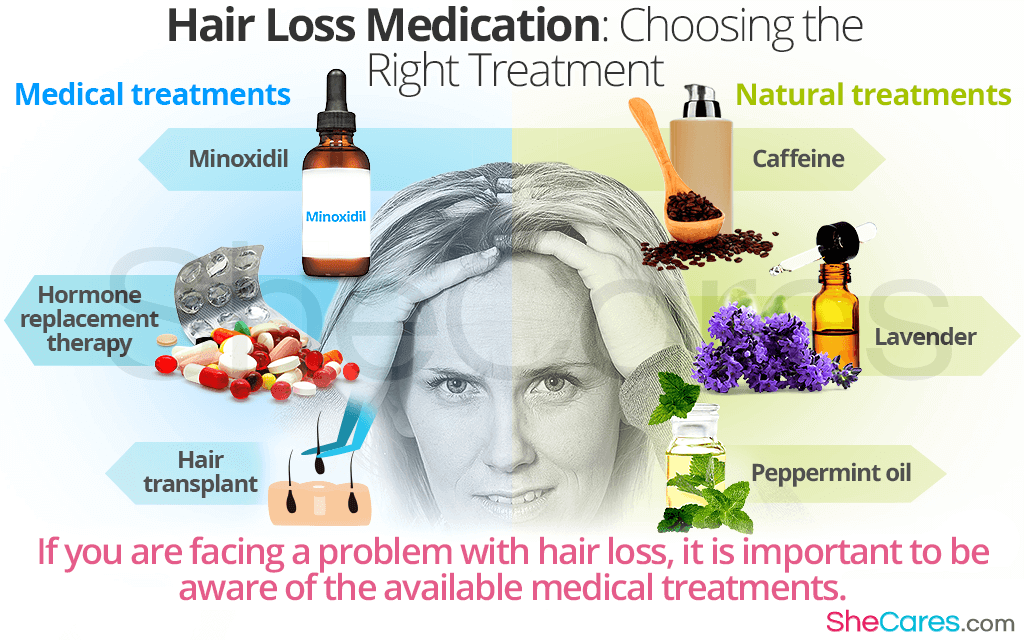Some women with hair loss or thinning are able to accept the situation and embrace their new appearance. However, for the majority, it is somewhat of a struggle. Hair is often considered an integral part of personal identity and femininity, and so many women prefer to do what they can to grow more hair, or at least protect what hair they do have.
One of the most important factors to consider is whether you would prefer to explore prescribed or natural options. Both have merits and drawbacks, so it is important to thoroughly research and evaluate your choices before jumping into anything.
Medical Treatments
Unfortunately, most - if not all - of the available medical treatments for hair loss in women are expensive, and are not always effective. Below are some of the more popular:
- Minoxidil. This drug works by widening blood vessels, and in so doing improves circulation. It was originally designed to treat high blood pressure, but it was discovered that it can also stimulate hair growth. It is available as both a lotion and in tablets. Unfortunately, it is thought that it is only successful in one in four women, and any hair that grows is likely to fall out if you stop using the medication.
- Hormone replacement therapy (HRT). If your hair loss is due to menopause-related hormonal changes, HRT might be an effective option. This can work to improve the balance between estrogen and testosterone, which will mean hair follicles are less likely to become damaged. There are negative side effects associated with HRT, however; it is known to increase the risk of stroke, blood clots, and cancer.
- Hair transplant. Instead of opting for medication, some women decide that a hair transplant is their favored choice. These can be considerably expensive, and they take several months before the effects are noticeable.
Natural Treatments
An alternative to prescribed intervention, some women find that natural treatments are a worthwhile route to look into. Below are some natural ingredients known to help stimulate hair growth:
- Caffeine. Many manufacturers include caffeine in their hair products, as it is known to be effective in encouraging hair growth by penetrating the follicles. Shampoos and conditioners can be bought, or solutions can be created in the home.
- Lavender. Scientific investigation has shown that lavender is also successful in enhancing hair growth, health, and thickness. It is recommended that the essential oil be added to a conditioning mixture and applied to the scalp for at least 10 minutes.
- Peppermint oil. Recent studies have revealed that substances within peppermint can encourage hair growth. It should be massaged into the scalp to directly access the hair follicles. Some stylists suggest that warming the oil before applying it can help stimulate blood flow, therefore assisting with growth.
Plowing through the mountain of information that's out there concerning female hair loss can be overwhelming and can leave you feeling even more confused. If you are suffering from hair loss, before arriving at a final decision about your course of action, it is advisable to discuss your thoughts with your doctor.

